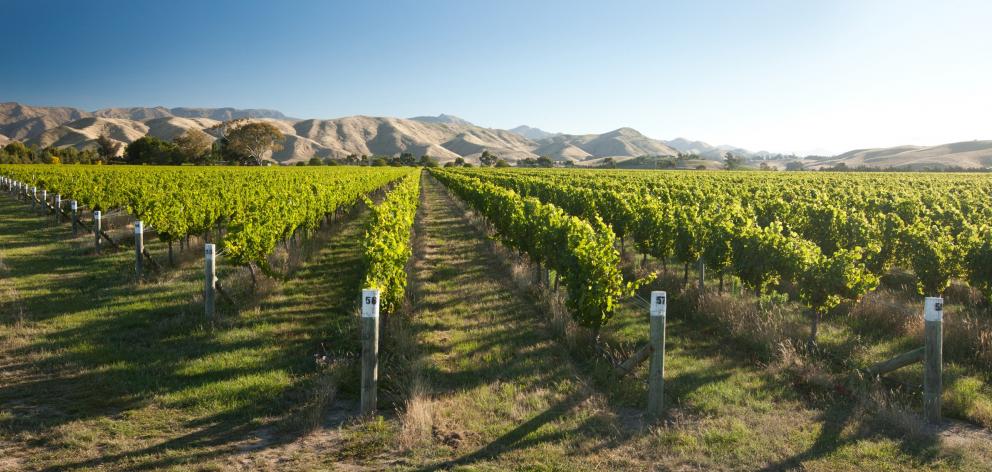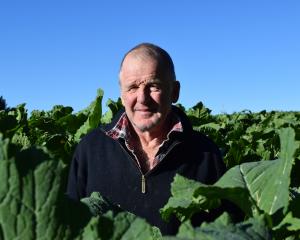
Instead of curbing foreign ownership, aspects of the proposals could result in foreign owners instead opting to buy more vineyards and land outright, undermining efforts to keep more assets in New Zealand hands.
Crowe Horwath partner and agribusiness specialist Alistair King said the proposed Government restrictions and legislative changes on foreign investment were aimed at reducing the amount of foreign investment in New Zealand’s pristine assets, such as high-country stations and large tracts of land.
However, the proposals are having unintended consequences on more intensive and highly productive forms of horticulture and viticulture.
"If restrictions move ahead as planned, it could negatively affect these profitable industries," Mr King said.
Wanaka-based Mr King said profit-a-prendre was first used about seven years ago and while not seen in Central Otago vineyards, it was used extensively in Marlborough and occasionally in Hawke’s Bay. One foreign winemaker alone has about 770 planted hectares under profit-a-prendre.
In horticulture it is extensively used in the forestry industry, which attracts large foreign investment, and Northland had exemptions to change already.
The proposed Overseas Investment Office (OIO) changes are aimed at limiting the use of profit-a-prendre in viticulture, more simply known as an easement, he said.
At present, a foreign company only has to notify the OIO it has a profit-a-prendre, but the OIO wants to make them "subject to OIO approval", which could be a $100,000 to $200,000 cost.
"That’s where they [foreign buyers] will probably go, ‘let’s just go through the purchase process’," he said.
Profit-a-prendre is used in the wine industry as another method of helping wine companies get access to fruit supply.
"It enables [foreign] wine makers to take grapes from land they don’t directly own," Mr King said.
The foreign-owned winery paid a fee to have access, which was not a change of ownership, so the land remained with the New Zealand owner.
"Essentially, it is similar to a grape supply agreement, while the agreement also gives the winery control over how the vines are managed and ensures the grapes that are grown are of the desired quality and standard, while adhering to a predeveloped cost structure," he said.
Mr King noted profit-a-prendre was a popular model for multiple investors in small vineyards, who then received a monthly, set fee paid by the foreign winemaker.
He said if the Government went ahead with the proposed changes to legislation, the horticulture and viticulture sector would "likely take a huge hit".
The use of profit-a-prendre assisted extensive investment nationally, while leaving the land New Zealand owned, so was "the perfect instrument" to enable thriving industries to grow and remain profitable, Mr King said.
Removing the exemption under the Act would force foreign companies to go through the purchase process to get the right to farm through the OIO, to use a profit-a-prendre.
"If a [foreign owned] wine company must jump through those hoops, they may as well purchase the vineyard or put a lease in place which then takes the rights away from New Zealanders and will put the land and vineyard assets into foreign hands," Mr KIng said.
This proposed change "clearly defeated" what the Government was trying to achieve, in terms of reducing foreign ownership of New Zealand land assets, Mr King said.
Unlike ownership of vineyards or the lease of vineyards, the profit-a-prendre allowed the New Zealand owner to maintain ownership of the vineyard and land assets, while maintaining their full security and entitlements over those assets, Mr King said.
New Zealand’s wine industry was a global success story, and foreign capital had played a "significant role in that success", he said.
As an example, he said Cloudy Bay, owned by Louis Vuitton Moet Hennessy, helped enhance New Zealand sauvignon blanc globally.
"The Cloudy Bay brand, based around its New Zealand wines, is now iconic throughout the world, and New Zealand has benefited from that success," Mr King said.















